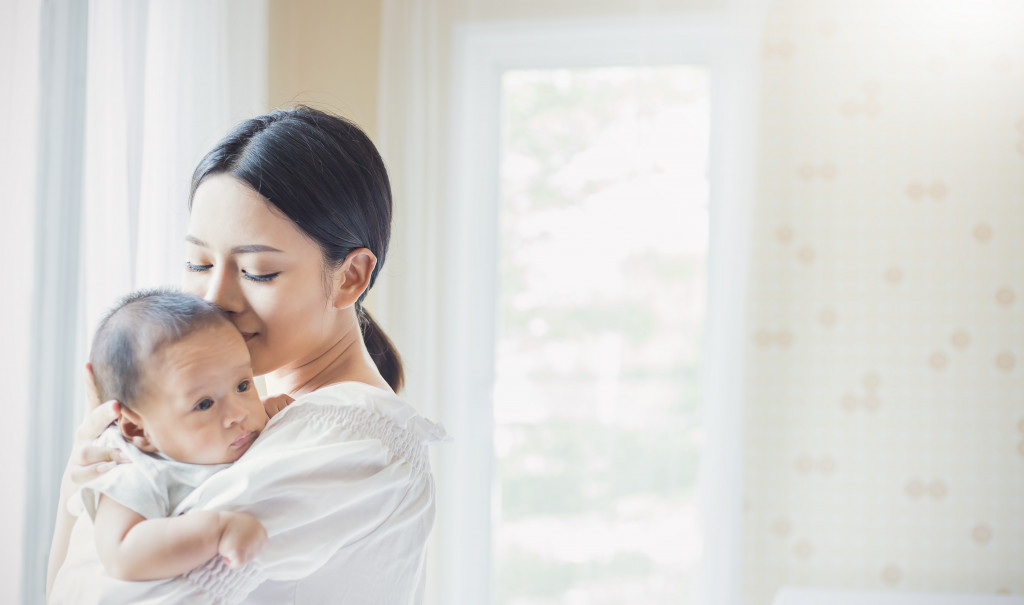The postpartum phase starts after your kid is born and concludes when your body has almost recovered to its pre-pregnancy condition. This phase typically lasts six to eight weeks. Many changes occur throughout the postpartum period, both mentally and physiologically. You’re also figuring out how to cope with all the changes that come with being a new mother. During the postpartum period, you and your spouse will also learn how to care for your baby and operate as a new family unit. It would be best if you took excellent care of yourself to regain your strength. During the first several weeks, you will need lots of rest, proper nourishment, and assistance.
The Impact of Postpartum Self-care
Making time for oneself is a challenge for many individuals, but it is particularly tough for new mothers. Caregivers (of all kinds) prioritize the needs of others above their own, and you might feel the same way as a new mother. Self-care aids in the maintenance of one’s feeling of self-worth. New mothers often claim that they “have forgotten who they are” and have become engrossed in their new parenting identity. However, you are much more than “simply a mom.” Self-care can remind you of your individuality.
Taking care of yourself provides a beautiful example for your children. If you want your children to sleep well, eat properly, take care of themselves, and flourish, they must see you do so. Parental burnout can make you physically ill. Being a parent is tough, but being a mom who has a cold or the flu is much more difficult. Parental sadness and anxiety can have a detrimental effect on a child’s development. When a parent suffers from depression, their children suffer as well. Parental depression has been shown in studies to interfere with healthy bonding, raise the likelihood of childhood behavior issues, and increase the probability of the kid having scholastic difficulties when they start school.
Find Support

It’s widespread to want to spend some time as a new family together following the birth since everyone has been so focused on welcoming your child. Once you’ve spent a few days understanding parenting, approach your friends, family, coworkers, or neighbors. Your loved ones will be happy to provide financial and personal resources to get a few baby snuggles in return. Have a family member or a close friend help you cook every Sunday night—ask neighbors to help you trim the lawn or shovel the driveway. You can ask a friend to accompany you to the grocery store, help you with a load of laundry, or take your dog for a walk. If it’s in your budget, hire a postpartum doula to assist with childcare and boost your confidence in nursing.
Be Comfortable
When preparing the nursery, we spend so much time that we forget to take time for ourselves. Create a comfortable space in your home where you can unwind. Spatial relaxation areas that include plants and natural light, as well as the soothing noises produced by a fireplace or fountain or bird feeder, or even a fish tank, are ideal. Take a stroll around a furniture shop for a unique chair or rug that can help create a homey atmosphere.
Go on Adventures
After having a kid, it’s all too tempting to limit your world to the four walls of your house. Make plans with your friends to get out of the house: have a cup of coffee, a pedicure, supper, a stroll in the park, or a movie. Make your time together with a routine so that it doesn’t slip away.
Use that opportunity to discover whether your infant likes trips in the vehicle or stroller. Take a day excursion to somewhere you’ve never visited or something you’ve always wanted to see. Or go out on your own. Leave your kid at home with relatives and go someplace you wish to go for a few hours. Take the time to do activities you enjoyed before having a kid.
Set aside some time each day for contemplation and meditation. You can do this before your infant comes out of bed, during naptime, or at the end of the day. Reflecting on your everyday challenges and victories allows you to develop in incredible ways. As a new mother, you must care for both your child and yourself. It’s not that we can’t make time for self-care; it’s that we don’t believe it’s essential. However, self-care is necessary for both your health and that of your child. Seek help from your friends and family, and remember that anything you do to take better care of your health will benefit your baby’s well-being.

